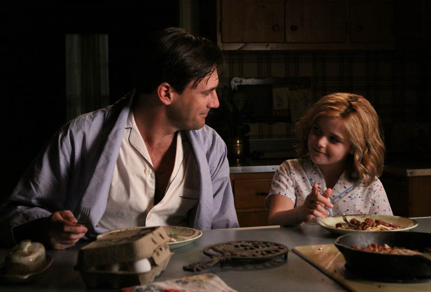It’s a mad, mad, mad, mad world and everywhere you turn, people are racing to embrace AMC’s Mad Men, a drama about an advertising agency circa early 1960s, on the eve of the political and social upheavals that would define the Boomers. First, it was the marketing and advertising Twitterati converting their avatars into Mad Men characters this summer in anticipation of the show’s return; then the Emmys who conferred no less than 16 nominations to the show, which ultimately won best drama, and now Sesame Street, always au courant on cultural trends, with their sly nod to Mad Men. And, in reaching this broad intergenerational audience, creator Matt Weiner may have inadvertently done more to introduce the Boomers to a new generation of Madison Avenue denizens than any generational anthropologist or media planner.
For the record, Weiner was not looking to add to the Boomer nostalgia canon. Instead, he was more intrigued with the America of the mid-1950s and early 60s; a time of peace and prosperity when bucolic suburbia enticed America to its leafy streets, well groomed lawns, and shiny new schools. When husbands went to work in far away cities, mothers gathered at neighborhood coffee klatches and children — aka the Boomers – hung out unattended, un-play-dated, unscheduled. He wanted to tell the story of America at a time of surface happiness and inner dissatisfaction when the nation as a whole looked around and asked, “is this it? Is this as good as it gets?”
In capturing the cultural zeitgeist of the late 1950s/early 60s, Weiner gives non-Boomers a ringside briefing each week on the forces that ultimately form and fuel the Boomers’ rejection of the status quo. Consider for example:
- The sexism that relegates smart career women like Joan to the secretarial pool or forces Peggy to make significant personal sacrifices to rise above that station.
- The racist segregation that prompts a restaurant manager to inquire if the black waiter is “bothering” Don in the first season when Don asks the waiter for his opinion on cigarette brands or startles Hollis, the black elevator attendant, in the third season when Pete Campbell asks him about television brands.
- The quintessential paradigm of suburban wife discontent that Betty Draper epitomizes and that Betty Friedan will chronicle in The Feminine Mystique (published, incidentally, in 1963) of college educated wives withering away in suburbia.
- The frequent drinking to numb the mundane-ness of their lives, which Roger Sterling insightfully notes to Don in the first season: you and your generation “drink for the wrong reasons. My generation, we drink because it feels better than unbuttoning your collar, because we deserve it. We drink because it’s what men do…. Your kind, with your gloomy thoughts and your worries, you’re all busy licking some imaginary wound.”
Boomers: Not Evident
And this briefing occurs with hardly a mention of the Boomers. They are present only on the periphery: as Don and Betty’s children, Sally, Bobby and new born, Gene; as advertising targets (“Pepsi for those who think young”) or, more recently, as two hitchhiking, pill popping teenagers willing to do anything to avoid the draft. But, as Weiner and his writing staff work through season three and four, they will no doubt incorporate some of the upcoming social and political events that will bring these Boomer children into sharper relief – events such as the civil rights march on Washington, DC when Martin Luther King delivered his “I have a dream” speech, the publication of The Feminine Mystique, the succession of assassinations (John and Robert Kennedy, Martin Luther King, Malcolm X), and the arrival of the Beatles to America. And, in doing so, they will continue to illuminate the Boomers for the two million plus 18-49 year olds who tune in each week – including the new generation of Madison Avenue denizens.

